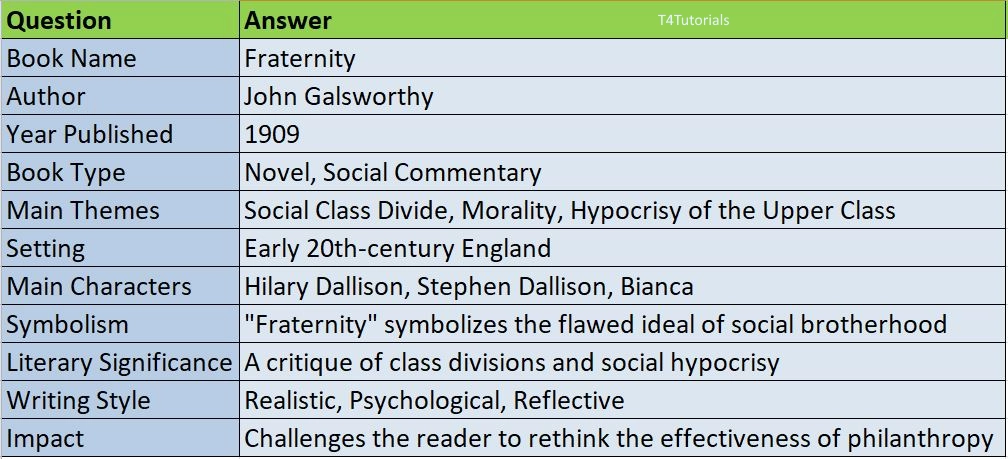Summary:
Fraternity is a novel by John Galsworthy, published in 1909. It explores themes of social class, morality, and the growing divide between the privileged and the working class in early 20th-century England. The novel critiques the superficial benevolence of the upper class toward the poor while highlighting the struggles of the working class. The story follows a wealthy idealist, Hilary Dallison, who becomes involved in the life of a working-class girl named Bianca. He sees himself as a benevolent protector, but his efforts reveal the hypocrisy and limitations of upper-class philanthropy. Meanwhile, his brother, Stephen, represents the more pragmatic and indifferent side of the privileged class. The novel examines the complexities of social responsibility, morality, and the contradictions within the so-called “fraternity” between the rich and the poor. Through its realistic portrayal of class struggles and moral dilemmas, Fraternity serves as a social critique of the era, questioning whether true empathy and brotherhood can exist across class lines.
10
Score: 0
Attempted: 0/10
Subscribe
| Question | Answer |
| Book Name | Fraternity |
| Author | John Galsworthy |
| Year Published | 1909 |
| Book Type | Novel, Social Commentary |
| Main Themes | Social Class Divide, Morality, Hypocrisy of the Upper Class |
| Setting | Early 20th-century England |
| Main Characters | Hilary Dallison, Stephen Dallison, Bianca |
| Symbolism | “Fraternity” symbolizes the flawed ideal of social brotherhood |
| Literary Significance | A critique of class divisions and social hypocrisy |
| Writing Style | Realistic, Psychological, Reflective |
| Impact | Challenges the reader to rethink the effectiveness of philanthropy |